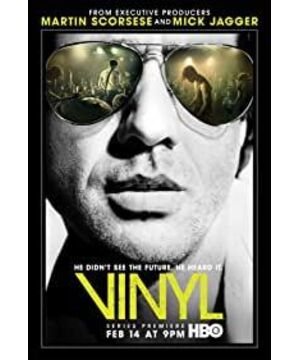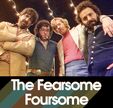(1)
1973: In
January, Kiss held its premiere at the Coventry Theater in Queens, New York. In
February, after David Bowie completed a performance in Madison Square Garden, he collapsed from exhaustion backstage. In
March, Pink Floyd released "The Dark Side of the Moon"
April, Paul McCarteny's first TV show since his solo debut on ABC
May-July, Led Zeppelin "landed" in the US
July, David Bowie announced that he would never perform "Ziggy Stardust" again, Ten days later, Queen released her first album
. In October, the "1973 oil crisis" broke out, resulting in a serious shortage of raw materials for vinyl production. In the second half of the year, a large number of record releases were forced to stagnate . In
December, CBGB opened
...
Wiki search "1973 in music”, you will find these prominent names with their own musical sounds lined up in a long list waiting to be retrieved. In the 1970s, the situation was changing, the Vietnam War was coming to an end, and the confrontation of the world's Cold War was still on the rise. A large number of colorful new age music giants; "post-Beatles" British rock bands invaded the United States again, Rolling Stones, Pink Floyd, Led Zeppelin... The waterway between London and New York became closely intertwined with rock music. In 1976, Yamaha launched the first CS-80 analog synthesizer, which greatly promoted the improvement of music production and laid the cornerstone of avant-garde electronic music...
Undoubtedly, from a historical point of view, the young political trends, avant-garde and breakthrough arts represented by pop music are the threads that run through the cultural ecology of an era, and also have enlightening effects on future generations. But the so-called "authority fans", whether musicians in the 1960s or 1970s, may not be able to take their mission and value so far and so seriously, they are still used to using the most convenient and clear set of methods for their music. Summarize the key points, lead the trend - business, is one of the methods.
The pop music industry, with record companies, radio stations and charts, has given music a clear process and division since its inception: record companies introduce artists, radio stations promote artists, and charts eliminate artists... Not because of music, especially The simple and vague metabolic model of rock art and rebelliousness just doesn't work. Of course, there are different kinds of clever tricks and means, and it cannot be summed up clearly in one or two sentences. As the leader of this chain, record companies play a pivotal position on the map of popular music. Their stories are definitely not as dazzling and enthusiastic as the superstars on the stage. As the "root" of the lush giant tree of music, its struggle in the dark commercial soil may also be the dark side of rock music.
As far as the ups and downs of Muddy Waters' generation of black blues and R&B's big family Chase records, to the first black hip-hop label "Sugar Mountain", which fell because of the commercial operation of white people in hip-hop music, and even close to Jay-Z's The recent copyright and shareholder dilemma of Tidal, a streaming media upstart... Around the little Label printed on the record, the hard work has actually gone far beyond the simple meaning of a dozen songs on the record.
In the first episode of "Vinyl Age", the protagonist Richie Finestra's record company American Century faces the crisis of being acquired by the German "Polygram" Polygram. In the music world before 1999, "Polygram" was the largest record company group. It expanded its territory all the way, and the list of annexed record companies was long enough to spread over a table. Now music fans such as A&M, Motown, Island, etc. are familiar with it. brands are included. Taking disco bands such as ABBA and Bee Gees as an example, the bands or superstars that are popular all over the world in any music wave are basically inseparable from the "Polygram" trademark... Therefore, in the story, Richie's record company was acquired, If it is placed in history, it is just a small episode of the "Poly Gold" dynasty. Before the new century, the record industry was guided by "Polygram", and those independent and discerning small record companies took great pains to discover outstanding musicians, and eventually they inevitably merged into the "Polygram" phonograph kingdom. Why has "Poly Gold" been able to hold the ear of world popular music for nearly half a century? The most obvious reason may be that its subsidiary Philips directly invented the two key music media, cassettes and CDs.
The above is the background of "Vinyl Age".
(2)
Richie Finestra, the man who is being "hit the waist" by life is obviously going through a series of mid-life crises-a record company that has worked so hard is facing being acquired by an industry giant ; Led Zeppelin, the most profitable "Heavenly Group" under his command, has torn his face with himself; the signing of the new band has not improved, and the old records have been conspicuously kicked out of the radio broadcast qualification; a simple rock boy's heart has to fight with various people. ...From first discovering Lester Grimes to catch up with the last golden train of blues music, to sniffing out the huge potential of ABBA, we can see that Richie has the most acute hearing and vision for pop music. But perhaps, he is not a qualified businessman.
Concerns and memories are the most important backgrounds that prompt a person to make choices about his life path. Just like you can't imagine that Bolaño could have written "2666" if he hadn't experienced political harm and love for his motherland. ” and other works that exude the atmosphere of eternal exile, in 1955, the song “Rock Around the Clock” in the movie “Blackboard Jungle” was like some kind of apocalypse to the young Richie Finestra, burying a heart in him. bomb. More than ten years later, Lester Grimes and his superb blues singing in the bar is another life concept - an opportunity, which opened the door to the "music businessman" camp for Richie. Afterwards, the tide rises and falls, and entering the industry is like entering the sea, and crises follow one after another, and a cavity of blood and confidence is no longer enough to solve everything. Opportunities are followed by new ones, which are harder to see and harder to seize. In this story, The Nasty Bits may be the dawn that Richie is about to see.
From this point of view, "Vinyl Age" is inevitably interpreted as "crossing the hills, living in the sea", which is a group portrait of the strugglers in the era. In Richie's body, it is a special case. We clearly see the beginning of rock and roll, the last train of blues, the heyday of classic rock and heavy metal, the budding of disco, the undercurrent of New York punk...
This is an era suite about pop music.
(3)
Bo Diddley, Screamin' Jay Hawkins, Joe Houston... These "old" names came to 2016 from the dusty past through the dialogue between Richie and Zak. They are the "grandfathers" of Rock n' Roll, and for a businessman like Richie who is ripping off his bones from rock music, forgetting his ancestors must be one of the taboos.
Richie's birthday present, the square boxed guitar is Bo Diddley's most famous logo. In the spring of 1955, Bo Diddley began his half-century career by recording his self-titled "Bo Diddley" on Chicago's most prestigious blues and R&B label, Chase Records. The bluesman, who built this oddly shaped guitar with his carpentry skills, was able to get his compositions to a unique African tribal beat like never before any Chicago bluesman's fingertips . This ingenious pioneering style played a pivotal role in the early breakthrough of rock music. Bo Diddley's playing has influenced a group of rising stars in blues rock including Eric Clapton, Jimi Hendrix and The Yardbirds, among others, and is one of the irreplaceable guides of the genre. His square guitar and craftsmanship later evolved into the famous guitar brand "Gretsch".
But even if Bo Diddley's status is here, no one dares to say that he is the pioneer of rock music. Although his Chez Records has both him and a real "rock living fossil" like Chuck Berry (many people don't realize that Chuck Berry is still alive and is 89 years old), this label is in a state of ignorance about early rock music. of U.S. nationals remains very limited. Leonard Chess, the founder of the thorny label, died of a heart attack after selling Chess Records, failing to witness the brilliance and upheaval of pop music that began in the 1970s. Muddy Waters, Little Walter, Howlin Wolf, these names are more just to be admired by the old-timers in the population of Mick Jagger, and the halo of superstars has not favored them.
But the big explosion of rock music in the mainstream group is traceable. It comes from the childhood story Richie narrated in the play, the MGM movie "Blackboard Jungle" and its soundtrack "Rock Around the Clock". In 1955, when Bo Diddley recorded the same title, "Rock Around the Clock" played by Bill Haley and his band appeared to American audiences in a black and white film. Unheard of for most Americans at the time. Its vulgar rhythm makes parents feel like enemies, but children and teenagers feel a different and fresh experience. This kind of music called "Rock n' Roll" exploded, and it also exploded in the hearts of Richie and those who had ears of the new era.
(4)
The encounter of Lester Grimes in the first episode can be seen as the decline of the traditional Chicago blues scene in the 1960s. Like the rough beats of Bo Diddley and "Rock Around the Clock," the sweetness of the blues is no longer favored by mainstream ears. Some black blues singers, including Willie Dixon and Big Bill Broonzy, chose to go to Europe to open up new positions, while Chase record veterans, such as Muddy Waters, slowly embraced rock and roll routines and changed their performance concepts.
In the 1960s, blues declined, and there were two other types of music that were "competitive" with rock music. One is a multiplayer ensemble pop called "Doo Wop," a relatively subdued black R&B that is more suitable for the market and mainstream white groups. In Richie's memory in the play, Lester was forced to sing by the record company to sing this kind of Doo Wop music. Frankie Lymon, Hank Ballard were Doo Wop's hottest entertainers in the '60s.
And rock's other enemy, ironically speaking, is a mutated version of out-and-out rock under the infection of a commercial virus - Bubblegum, the bubblegum rock dance music. As the name suggests, it's a frivolous, kid-friendly, but essentially nutritious rock 'n' roll. Bubblegum was created on a large scale in the 1960s and 1970s, composed and arranged by commercial producers, and hired short-term artists to play and sing songs, and these artists were usually given a band name that did not exist, thus giving the outside world "this is the The illusion of a real band".
In the first episode, Donny Osmond, who was repeatedly mentioned by the crowd, was the representative artist of Bubblegum music. In the mid-1960s, he and his four brothers formed The Osmond singing group, which became popular in the United States in the 1970s. Donny Osmond also became a teen idol after going solo, and its popularity is no less than that of Justin Bieber today. . Of course, just like Justin Bieber is unpopular in today's rock community, Donny Osmond was a complete clown to most rockers at the time, ashamed to mention this person's name.
But the existence of Donny Osmond and Bubblegum at least proves that rock music still has commercial value. Whether or not it can be transformed is another matter.
(5)
In 1973, Led Zepplin toured North America. Starts May 4 in Atlanta and ends July 29 in New York. Tickets for the three-running performance at Madison Square Garden were all sold out by July 27.
Led Zepplin is the ninth British rock band to embark on a theatrical tour of North America. In March of this year, Zepplin just released the fifth studio album "House of Holy", and from this album, the music style gradually revealed the prototype of faster and harder heavy metal. In addition, this is actually the first Zepplin album in which all musical elements are completely controlled by the band members themselves, without external influences such as producers. For these reasons, Zepplin, and especially manager Peter Grant, saw it as a major turning point for the band, and went to great lengths to bring it to the world. The North American tour in 1973 was, in a sense, the climax of "House of Holy".
Peter Grant, it sounds like the origins are quite deep. In 1963, as assistant tour manager, one of the first American artists to take tours was rock guru Bo Diddley. In '66, when The Yardbirds' accounts were in a mess, Peter Grant took over as their manager. Unfortunately, it was too late, and The Yardbirds still quickly disbanded due to a series of problems. However, this small failure also allowed Peter Grant to learn from experience, determined to better serve his next band, Led Zeppelin.
The intimate "G" in Robert Plant's mouth is scheming and aggressive. He is meticulous about the affairs of the band, especially when it comes to money. These characters are very well played by the actor in the first episode, but it is difficult to verify whether he really hates Germans that much. Historically, Polygram has not been involved in Led Zeppelin. It can be said that Led Zeppelin jumped to the pinnacle of rock and roll in the 1970s, and this non-stop manager contributed to Zeppelin almost all his heart. After the death of drummer John Bonham, Peter Grant broke down for a while.
There will always be ups and downs, and a rock band like Led Zeppelin that has reached the top with high energy, its fall must be particularly bleak. After Zeppelin, it's hard to find another British band that has made an unprecedented hit in New York. And New York's own rock music has already taken root and sprouted from the seeds of London. The artistic circles of Andy Warhol and Lou Reed are already shining more underground. In the first episode, Richie's wife Devon's conversation with a friend named Ingrid at a birthday party already foreshadowed Warhol and Reed's upcoming appearances in upcoming episodes. This Ingrid, I also suspect that it may be the actress Ingrid Bergman drawn by Andy Warhol.
(6)
Kip Stevens, the lead singer of The Nasty Bits in the play, and his actor James Jagger is one of the producers of "Vinyl Age" and the son of "Rolling Stone" lead singer Mick Jagger. With a "my dad is Li Gang" halo, I believe that Kip Stevens and The Nasty Bits are about to play an important role in the next story.
There is no doubt that The Nasty Bits is a punk band with no skill in music. With "Fucking, Fighting, Nothing" as the core concept, this nihilism in their bones will be inherited by many punk bands in the future. Further down the line, when New York's punk rock reached its climax, it was the opportunity for the rise of New Wave music. There is one detail. When Clark, a talent scout from the A&R department, forcibly took off the headphones of Jamie who was listening to The Nasty Bits for the first time, he asked her if it was the Suicide band just now. Suicide was the band that represented the beginning of synth punk and new wave music. They also figured prominently in the CBGB punk scene, and even managed to enter the mainstream in the '80s. Clearly, The Nasty Bits has not done enough to reach Suicide status.
On December 3, 1973, the CBGB Club opened in Manhattan, New York. This club, which originally wanted to accept the music of Country, Blues, and Blue Grass, will usher in the indulgence of the punk wildfire that has lasted for decades. The club culture and club performance of rock music will also become a new model of the music with the cultural phenomenon of CBGB. In the first episode, The Nasty Bits played a poor kid with no future under the halo of giants like Zeppelin, but in desperation Richie suddenly had such a seedling in his hands, how would he use it? It wasn't long before the punk wildfires in the New York underground were about to burn in his face.
(7)
The flames are on The Nasty Bits, and the dawn of the future is still dormant in the dark, it needs to wait for Richie to discover it.
——At the desperate A&R meeting, the scouts held a record of a Swedish band with the four letters of ABBA printed on it, and the vinyl record player rolled out the band's unique music full of strong impact and dance beats. The scouts who are addicted to rock music have no interest in this kind of pompous and lack of explosive music, and they are clamoring to turn off the record player. Only Jamie, who was young and showed a sense of music, muttered "You can dance with it", while the boss Richie, who seemed to be very interested in ABBA's music, disagreed with the scouts, "You're all hearing this the way ?"
- Collapsing in car as Robert Plant's attitude and bashing slammed Richie as chauffeur drives past black flats. He heard strange electronic drum sounds and beats coming from the apartment, and the streets were crowded with black men and women dancing with them. Richie didn't know what this kind of music was, he was very interested and wanted to find out, but was told by the black person to get the hell out of there with a gun pointed at his head. At the same time, he saw the downfall of Lester Grimes, who had ruined his future because of his helplessness and ruthlessness many years ago. His mind was in chaos, and the strong rhythm of electronic drums was twisted in his memory of blues. At this time, Richie didn't realize that the two giant beasts were waiting to jump into the waves of pop music with the momentum of crawling and charging.
One giant beast has colorful body scales, is agile, and has a cunning face; the other is fierce and dark, with old wounds all over its limbs, but there is a shadow of perseverance and unyielding in its eyes.
Disco and Hip-hop are coming.
(To be continued, do not reprint without authorization)
View more about Vinyl reviews











